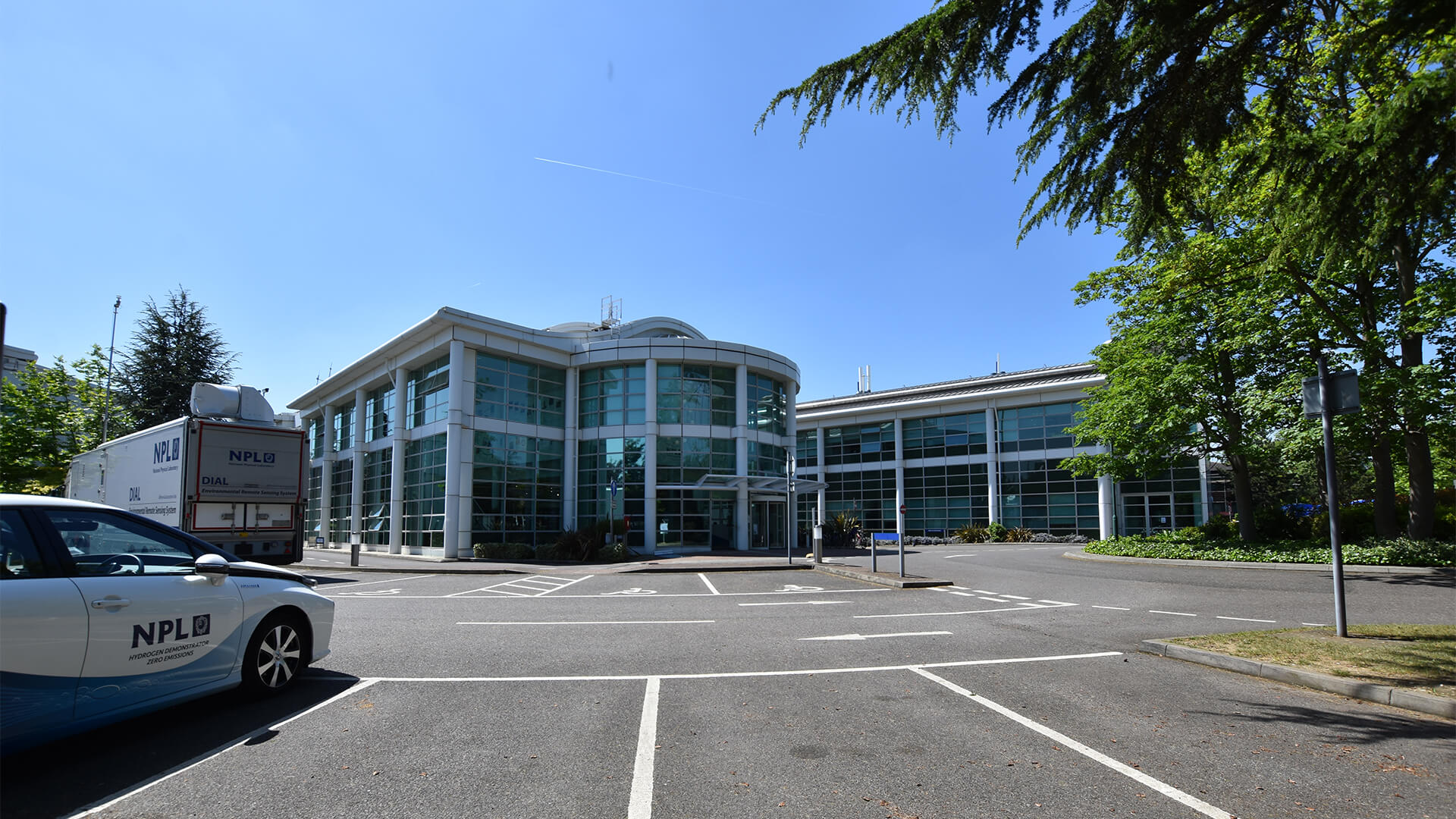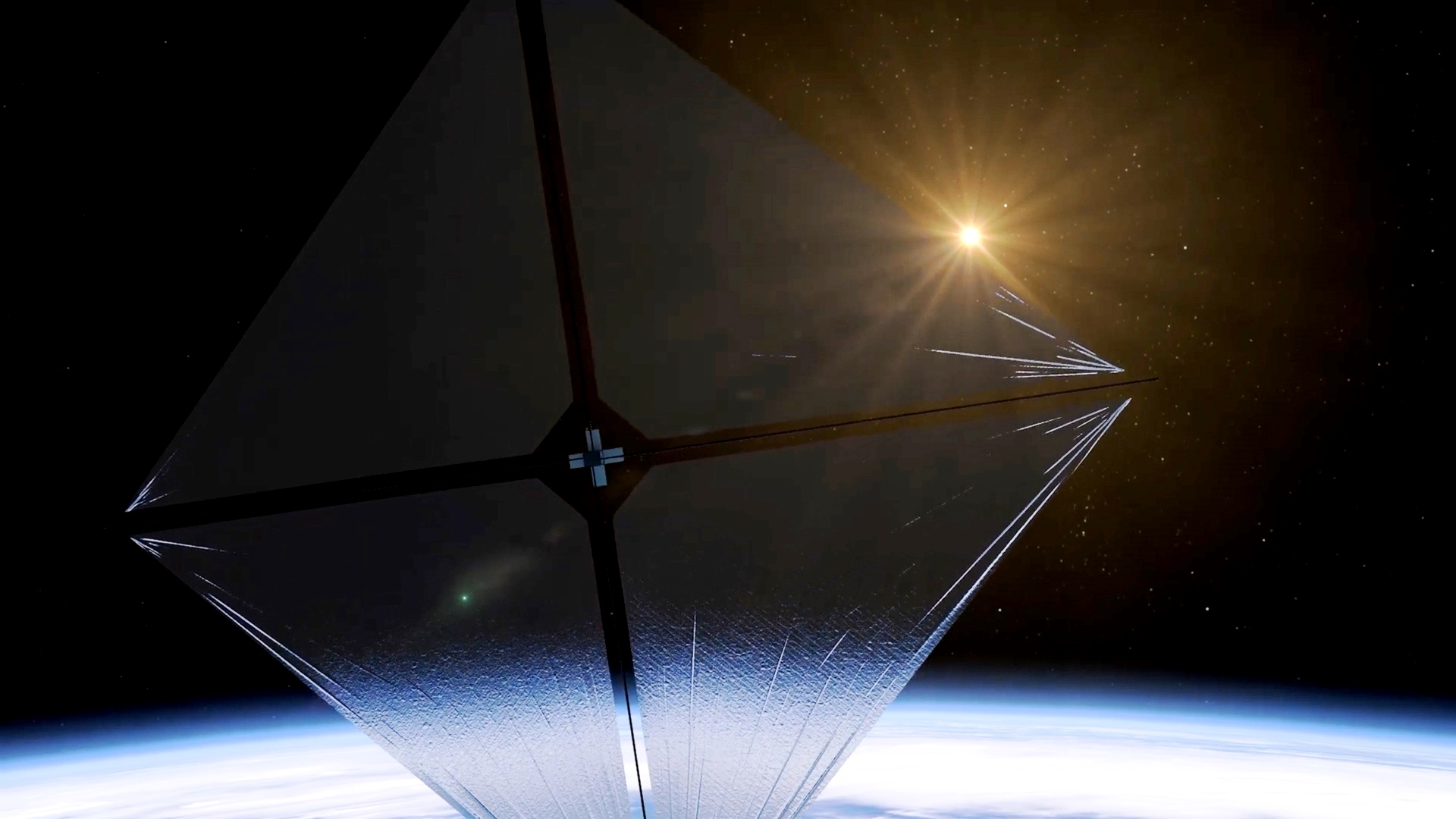£4.8m Research England funding provides major boost to UK space industry


Above:
Artist impression of what the flagship building of Space Park Leicester may look like.
Courtesy University of Leicester
Government ambitions for the UK space sector target 10% of a global space market of £400 billion by 2030 – a challenging goal requiring a coordinated approach from industry and academia.
The Universities of Leicester, Southampton, Surrey, Edinburgh and the Open University, which together form part of the Space Research and Innovation Network for Technology (SPRINT), have received the £4.8M Connecting Capability Fund (CCF) grant in order to support small and medium-sized businesses engaging with Higher Education institutions, providing them with unprecedented access to university expertise and facilities.
Partners involved in SPRINT include the UK Space Agency, the Satellite Applications Catapult, Seraphim and the Science and Technology Facilities Council.

Courtesy UK Space Agency
Dr Graham Turnock (above), Chief Executive of the UK Space Agency said: “Our growing space sector depends on the success of technology and expertise that comes from the world-class research carried out in the UK.
“The UK Space Agency is working hard to ensure the benefits of space are felt across the whole of the country, as part of the Government’s Industrial Strategy. The SPRINT programme has our full support – it will help smaller businesses tap into the world-class knowledge of some of the UK’s leading universities, giving them a real boost and creating new jobs.”
Research England’s funding of SPRINT will act as a catalyst to transform the ways that universities and broader partners collaborate, working to boost economic growth, jobs and prosperity throughout the UK by delivering market-led solutions to the space and space enabled economy.
For the University of Leicester, SPRINT aligns strongly with its Higher Education Industry Funding (HEIF) strategy and its flagship Research Institute, the Leicester Institute for Space and Earth Observation (LISEO), and pioneering work which will take place at Space Park Leicester.
Space Park Leicester is an ambitious initiative to develop a global hub and collaborative community based on space and space-enabled technologies. Based in Leicester, adjacent to the National Space Centre, the Park's first building is expected to be ready in 2020. It is part of the Leicestershire Enterprise Zone and was formally launched in March 2017 as part of the Government's Midlands Engine strategy with an allocation of £12.87 million and £10 million from the University.
 Professor Martin Barstow (right), Pro-Vice-Chancellor, Strategic Science Projects at the University of Leicester, said: “I am pleased to be working with all our partners in this exciting national project, which will transform the engagement of Universities with space and space-related industry.
Professor Martin Barstow (right), Pro-Vice-Chancellor, Strategic Science Projects at the University of Leicester, said: “I am pleased to be working with all our partners in this exciting national project, which will transform the engagement of Universities with space and space-related industry.
"The project will provide small and medium-sized companies with direct access to our expertise and facilities, helping them to grow in an increasingly competitive and challenging environment. It will also make a major contribution towards UK Government aspirations to take a £40 billion share of the anticipated growth in the worldwide space economy.”
Courtesy University of Leicester
Professor Paul Boyle (above), President and Vice-Chancellor of the University of Leicester, said: “We are pleased that Leicester has played a significant role in developing this partnership between a number of outstanding universities and space businesses. Our illustrious space scientists have a long-held reputation for conducting world-class research. This award is evidence of the deep partnerships that they have forged with industry, which will be vital if the government’s ambitions for the space sector are to be achieved.”
"The imminent development of Space Park Leicester provides a fantastic opportunity to capitalise on these types of collaboration; there has never been a better time for businesses to work with the University of Leicester. Whether you are observing a distant supernova or the traffic jams on Earth, processing data from a space probe or from a weather satellite on your mobile phone, space-enabled technology is affecting your everyday life and we are still at the tip of the iceberg of what it can achieve.”

Courtesy University of Leicester
Professor Iain Gillespie (above), the University of Leicester’s Pro-Vice-Chancellor for Research and Enterprise, said: “At Leicester, we want to lead the world in high-tech innovations around space, space engineering and space data. This important support from Research England is an amazing opportunity to develop strong connections between academia and industry in order to pursue these aspirations. Initiatives such as Space Park Leicester showcase the research capability of the University- building new partnerships, exploring the commercial and transformative aspects of our research, and most importantly, creating the opportunities that set our students apart."
The University of Leicester’s leading role in space research and technologies was recently represented at the GREAT Festival of Innovation which took place from 21 - 24 March in Hong Kong organised by the UK’s Department for International Trade.
Space science researcher and aspiring astronaut Dr Suzie Imber, who recently won BBC Two’s ‘Astronauts: Do You Have What It Takes?’, joined representatives of the University in talking about some of the latest exciting developments to come from space science and space-enabled technologies.
The university partners involved in SPRINT are individually engaged in active strategic approaches to knowledge exchange and commercialisation within the space and space enabled sectors, working with regional partners to develop investment in programmes, infrastructure and technology centres-of-excellence to secure facilities that support exploitation and growth.
Initiatives that build upon the institutions’ space expertise include Space Park Leicester, space and satellites in the Edinburgh City Deal, the South Coast Satellite Applications Centre of Excellence (CoE) and Surrey Space Centre.
The SPRINT funding is part of an investment of £67 million through Research England’s Connecting Capability Fund (CCF) in new collaborative projects, between universities and with other partners, to drive forward world-class university commercialisation across the country.
David Sweeney, Executive Chair of Research England, said: “These projects demonstrate the commitment of universities to work together to strengthen the R&D and technological capabilities of the UK, building upon our successful Higher Education Innovation Fund (HEIF). In the Industrial Strategy, the Government asked us to improve our ability to turn exciting ideas into commercial products and services. Universities have stepped forward in these projects to show that they can do world class commercialisation, alongside world class science.
“I believe these projects present important innovations that should inform our strategic approach to commercialisation in UK Research and Innovation for the future.”














